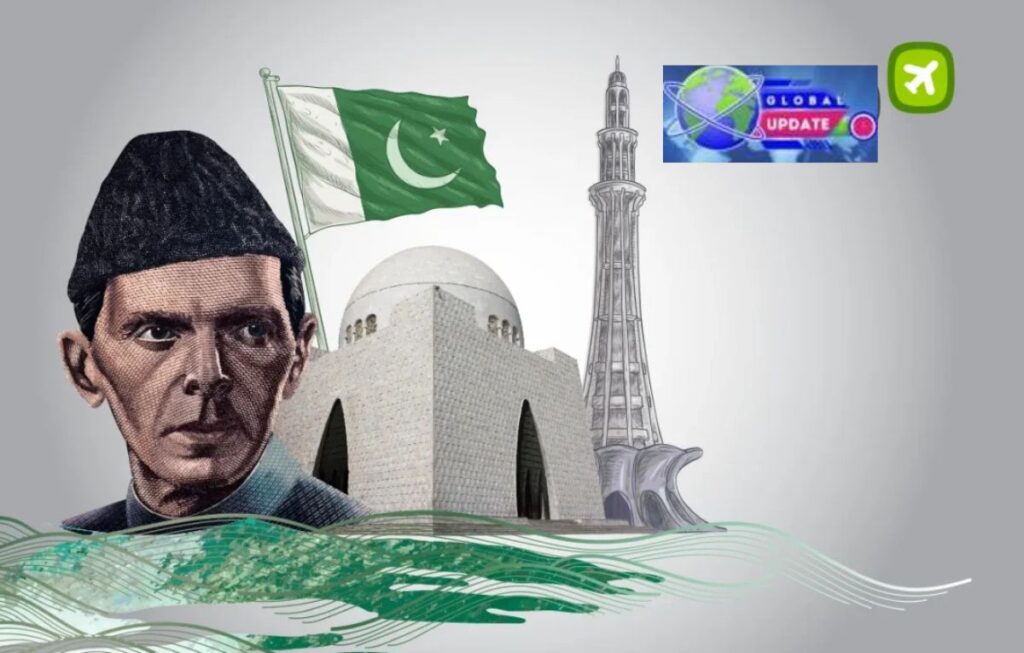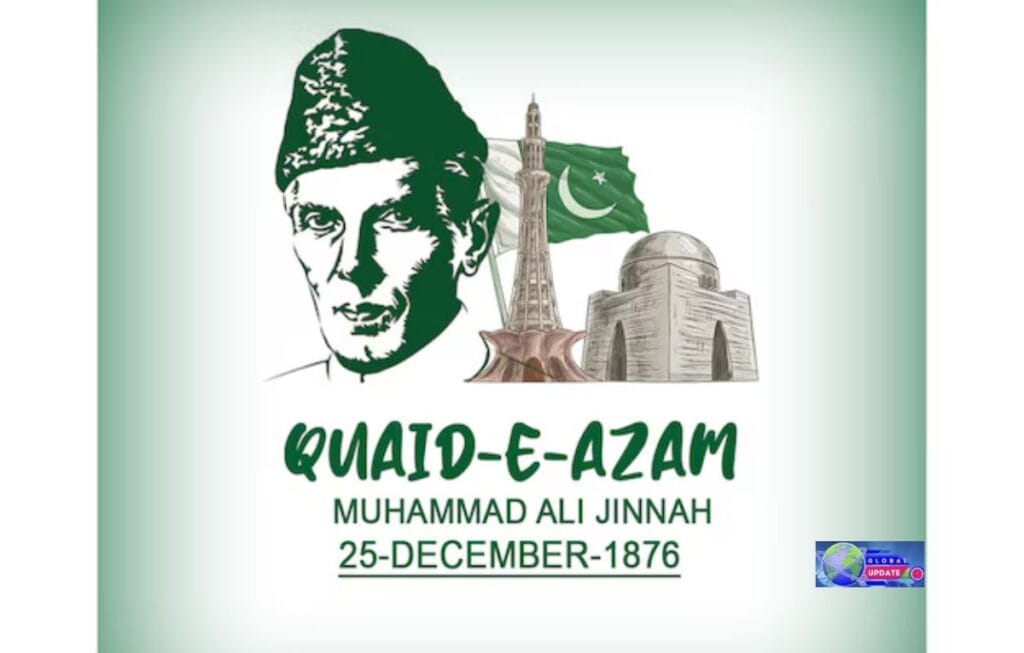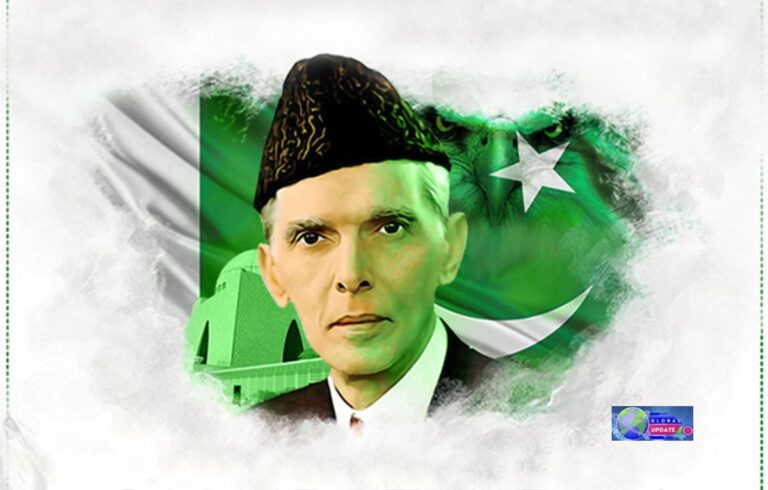Muhammad Ali Jinnah, revered and admired, is an essential figure in South Asian history. He was the founder and first Governor-General of Pakistan.
He was critical in making the country what it is today and represented the hopes of millions of Muslims in British India.
His rise from a lawyer in London to the political leader of a new country shows how farsighted, determined, and practical he is as a leader.
From the start, the years, the school
He was born in Karachi, part of British India’s Bombay Presidency, on December 25, 1876. He attended school in Karachi and was born into a family of merchants.
Ultimately, Jinnah went to London in 1892 to continue his education because he was so good at school.
He registered at Lincoln’s Inn and became a lawyer there. When he returned to India in 1896, he started working as a lawyer in Bombay and quickly became one of the most sought-after lawyers in the area.
Entering the political sphere
In the early 1900s, he became active in politics by joining the Indian National Congress (INC).
The INC was the leading political group fighting for Indian independence. At first, he strongly supported Hindu and Muslim unity and worked with famous leaders like Gandhi and Nehru. But as he saw how politics and society changed and how Muslims were pushed to the edges of Congress, his views started to change.
He formally joined the All-India Muslim League in 1913, which supported Muslims’ democratic rights in India. Jinnah’s explicit goal was to ensure that Muslims would play a big part in running the country and making decisions as it moved towards independence.

The Theory of Two Nations
Coming up with the Two-Nation Theory was one of Jinnah’s most important contributions to political thought. This idea said that Hindus and Muslims were not just two religions but also two separate nations with their traditions, values, and ways of life. Jinnah said that this was why Muslims should have their own national identity and, eventually, a separate country that would protect their religious and cultural rights.
Many people believed this theory, especially in the 1940s. The Lahore Resolution of 1940, which made it official for Muslims in India’s northwest and east to demand their independent states, culminated Jinnah’s vision. The resolution marked a significant milestone in the subcontinent’s history, ultimately leading to the establishment of Pakistan.
When Pakistan was first made
It took decades of hard work, fighting between groups, and political upheaval, but British India was finally split up in 1947. Pakistan became a free country on August 14 of that year, and Muhammad Ali Jinnah was its first Governor-General. His plan for Pakistan was for it to be a democracy where everyone had the same rights, no matter their religion or background.
On August 11, 1947, Jinnah gave his inaugural address to the Constituent Assembly of Pakistan, outlining his objectives for the new state. He said, “You are free to go to your temples, mosques, or any other places of worship in this state of Pakistan.” It demonstrates the significance of religious freedom.
That is not related to the state’s business. You can belong to any caste, religion, or creed.
His words today resonate strongly as Pakistan grapples with questions of identity, governance, and inclusivity.
Governance and Challenges
As Governor-General, Jinnah faced monumental tasks. The destruction caused by division, which resulted in one of the greatest mass migrations in history as well as severe intercommunal bloodshed, tarnished the nation.
Hundreds of thousands were displaced, and the newly formed state struggled to stabilise the system of government amid diverse ethnic and linguistic groups.
Jinnah’s ambition to establish a functioning government and legal structure for Pakistan was evident. However, the immense strain on resources and power for administration and the complex geopolitical landscape posed considerable hurdles. Despite his rapidly deteriorating health—he was diagnosed with tuberculosis—Jinnah’s commitment to the country was never cemented. He worked tirelessly to address refugee resettlement, law and order, and national unity.
Legacy of Muhammad Ali Jinnah
Muhammad Ali Jinnah has deeply influenced Pakistan and its people. His vision and principles laid the basis for a state that was envisioned to be democratic and egalitarian. Jinnah’s influence endures; he is frequently cited and revered as Baba-e-Qaum (Father of the Nation) and Quaid-e-Azam (Great Leader).
However, scholars, politicians, and the public have widely debated the interpretation of Jinnah’s vision. Some say that his ideals of a secular state have been overshadowed by religious nationalism, distorting his original vision.
Others believe his position on religious freedom inspires movements for tolerance and inclusivity within Pakistan.
In recent years, there has been renewed interest in Jinnah’s works and speeches as scholars and citizens seek to understand and reclaim his vision in the face of modern Pakistan’s challenges. The vibrant debates surrounding his legacy show the evolving nature of national identity and how historical figures can continue to influence contemporary thinking.
Public Holiday on December 25: Quaid-e-Azam Day and Christmas

As the year winds down, expectations for holidays and celebrations grow. In a significant statement that has garnered attention, the government declared December 25 a public holiday to honour Quaid-e-Azam Day and Christmas.
This decision reflects the country’s acknowledgement of cultural variety and the rich historical narrative that defines its identity. The meanings of the holiday news and what it means for various sectors such as education, commerce, and banking.
The Dual Significance of December 25
Quaid-e-Azam Day
Pakistan is known for its founding father, Muhammad Ali Jinnah, on December 25. He is known as Quaid-e-Azam, which means “Great Leader.” Jinnah was critical in the fight for Pakistan’s freedom and helped build a new country that gave Muslims in the Indian subcontinent a unique identity.
When we consider his impact, we remember Jinnah’s dream of a democratic, forward-thinking Pakistan where everyone’s rights are respected. However, the day is about more than just celebrating Jinnah’s birth. It also reminds us of his beliefs, like unity, faith, and discipline.
All over the country, ceremonies, educational programs, and community meetings are held to honour Jinnah’s life and work and encourage young people to follow his principles.
Christmas
Christians all over the world enjoy Christmas on the same day. Christmas is a holiday that remembers the birth of Jesus Christ. December 25 is a significant day for the small group of Christians who live in Pakistan. People get together with their families, attend church, eat holiday meals, and share gifts. The holiday stands for happiness, hope, and friendship, showing how important it is to care about others and work together.
Pakistan has a sizeable Christian community, and Christmas is marked with great joy there. It shows off the country’s cultural diversity by bringing people from different backgrounds together to celebrate unity and peace, which are core values that align with Jinnah’s vision for a society where everyone feels welcome.
The Choice of the Government
Making December 25 a public holiday is a proactive move by the government that shows it is committed to promoting respect for ethnic diversity and acceptance. The government’s recognition of Christmas and Quaid-e-Azam Day shows that it knows how important these holidays are in a mixed setting.
This alignment of two critical dates promotes dialogue between faiths and stresses togetherness among Pakistanis. It supports the idea that people of different religious and cultural backgrounds can live together peacefully. Public holidays that honour both events remind people in Pakistan that the country has many other beliefs and customs.
What the public holiday means
Effects on the Money
One interesting aspect of the holiday is how it will affect many areas, especially education, banking, and business. On December 25, all banks nationwide will be closed, stopping all everyday banking transactions and services. Because of this closure, people and companies may need to plan for their personal and business banking needs. They will need to take this day off when planning their transactions.
Also, customers may change how they act before and after the holiday, which could affect retail companies. Many businesses will likely have sales and other events as people look for Christmas gifts. Some may even be closed on Quaid-e-Azam Day. It makes it interesting to deal with Christmas shopping and showing national pride since stores must find a balance between the two.
Sector of Education
Because it is a public holiday, schools and other educational institutions will also be closed. During this break in the school year, students can learn about the meaning of both holidays. This will contribute to developing a welcoming environment where people’s beliefs are valued.
Teachers could teach lessons about Jinnah’s ideas and the values connected to Christmas, which would help pupils learn more about the different cultures in their country.
Impact on Society
Families and groups also gather to celebrate the holiday. Quaid-e-Azam Day and Christmas encourage people to gather, eat, and discuss the importance of unity, even though individuals may have different views. Community events, such as interfaith activities, can help people from various backgrounds talk to each other and improve their relationships.
Finally, some thoughts
Pakistan’s decision to make December 25 a public holiday for both Quaid-e-Azam Day and Christmas shows that the country wants to promote unity and celebrate variety. As people remember Jinnah’s significant accomplishments and get into the Christmas spirit. It’s a good time to think about what living together in a society with many different kinds of people means.
Promoting acceptance and mutual respect will have short-term effects on the economy but substantial long-term benefits. When a country recognizes and respects its different national identities, it strengthens society and sets the stage for a better future.
As December 25 draws near, let’s take the chance to learn more about these important dates for ourselves and others. We should discuss what makes us different and promise unity and kindness, which are essential to Quaid-e-Azam’s vision for Pakistan and the Christmas spirit.
In conclusion
His whole life, Muhammad Ali Jinnah worked hard to ensure that Muslims in British India received fair treatment and fairness.
With bravery and determination, he overcame huge problems and ultimately achieved his goal of a separate Muslim state. As Pakistan’s first Governor-General, he established the government rules that are still used today.
Jinnah’s ideas of democracy, tolerance, and acceptance are still important today as Pakistan develops its social and political environment. His story shows how difficult it is to build a country and how people will always seek identity and justice.
Jinnah was both a politician and an idealist. Many still regard him as an example of the power of leadership and the strength of the human spirit in the face of hardship.
Keep on Reading:
- Govt declares public holiday on December 25
- Pakistan Whitewash becoming the first team to destroy South Africa in their backyard.



